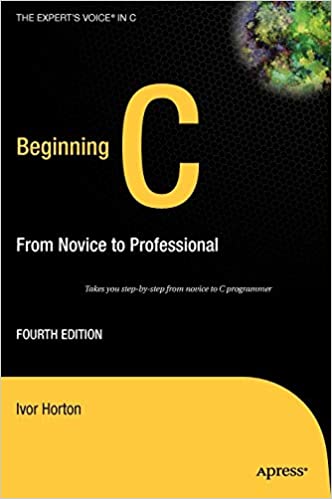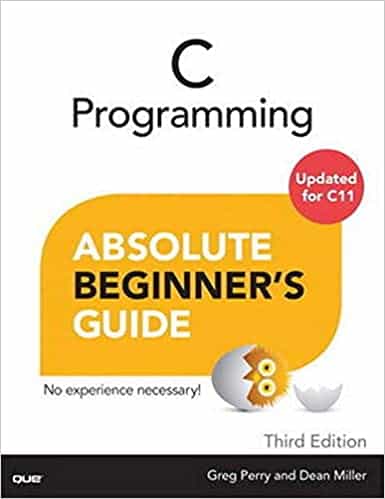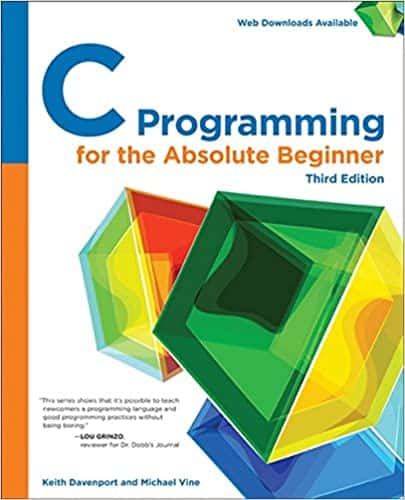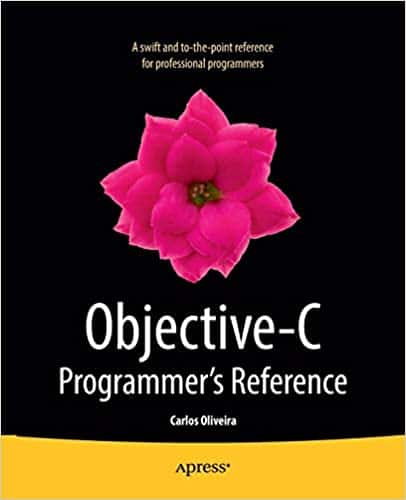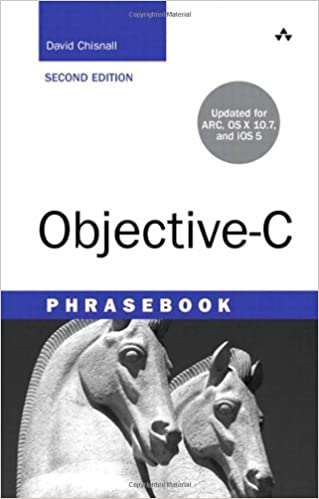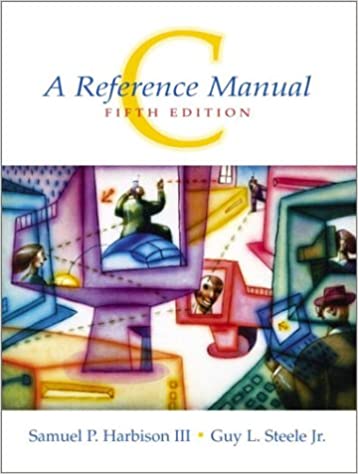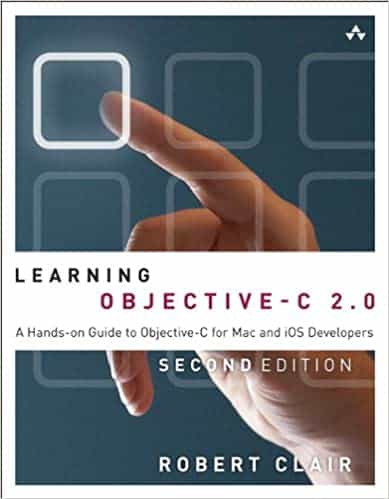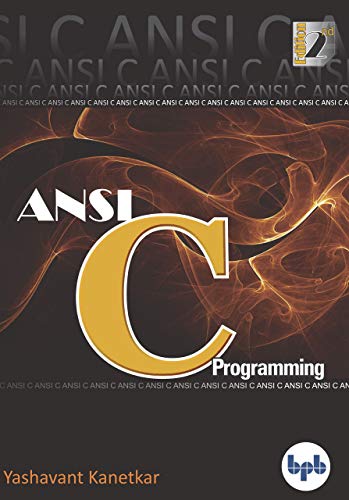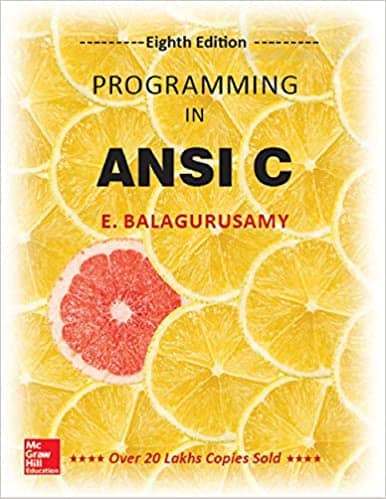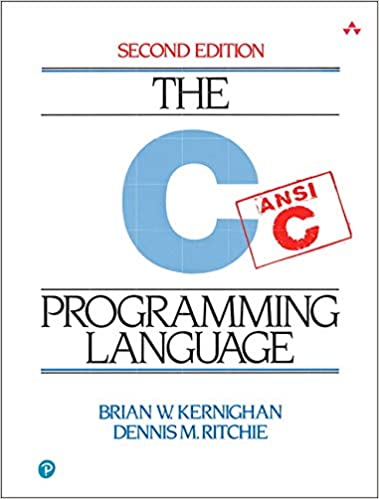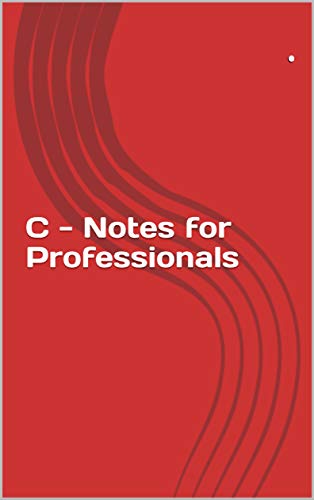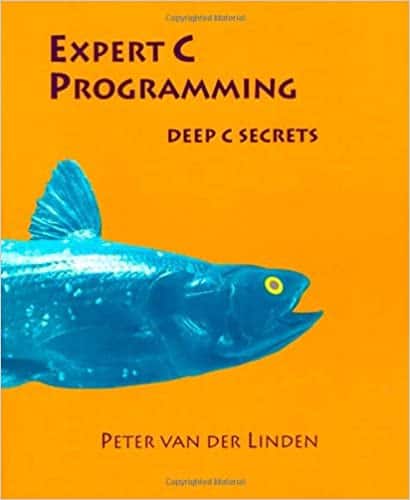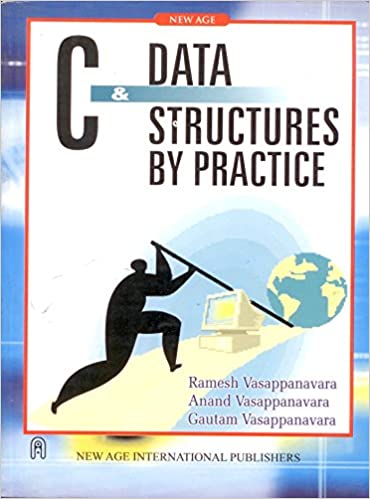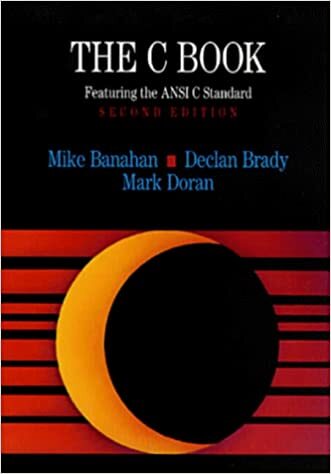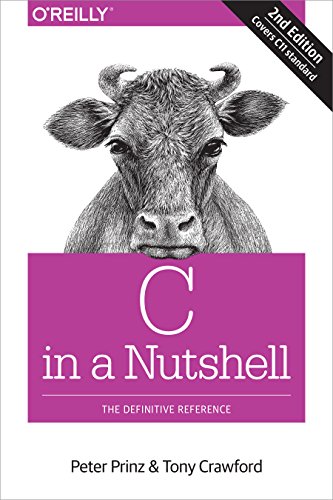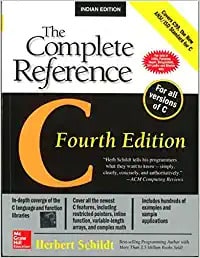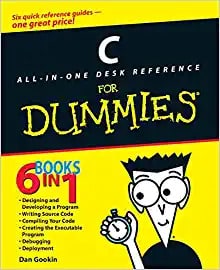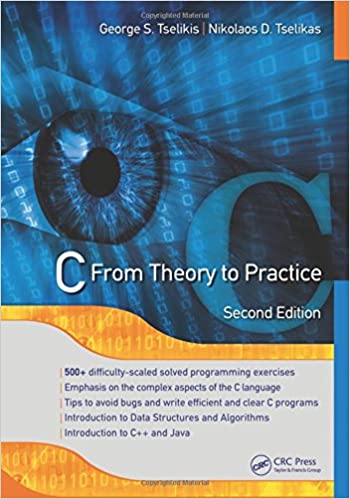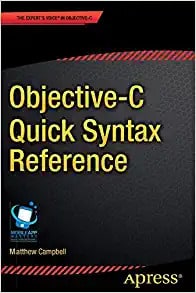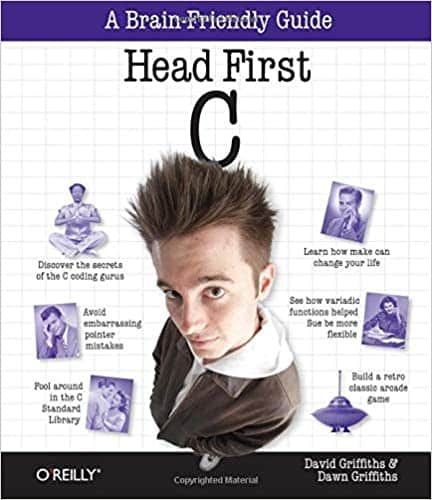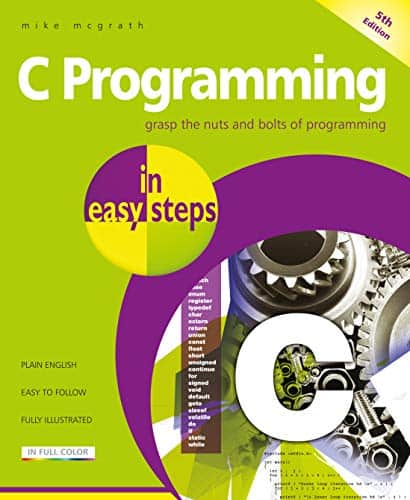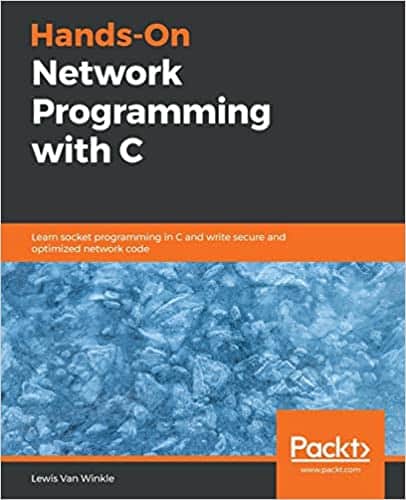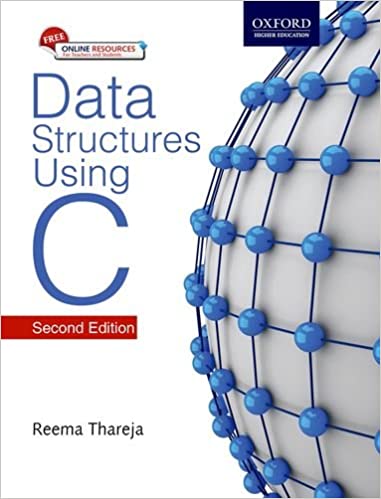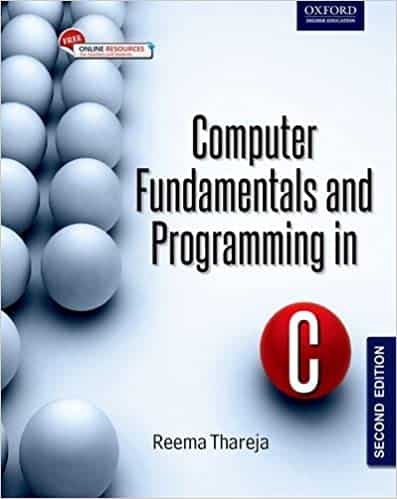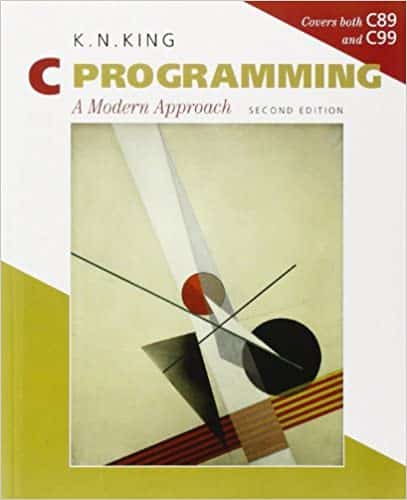C Programming Books is well known to learn C which is the most popular programming language used around the world and it is also so-called core language. Its possibilities are endless using C programming language, by which it can migrate to all shapes and sizes employ with the scalability and visibility. As for this the demand for learning and gathering knowledge by searching the C Programming Books on the internet. To level up your skills and improving in the C Programming by reading C Programming Books on the internet or you can buy them online. In the down below the Table Of Content will represent you the whole Book List which is get reviewed and get listed specially for the beginners level, those who will start from scratch. So, irrespective of your programming skills, you find a book that suits and also definitely fulfills your requirements.

Contents
Best C Programming Books ( Recommended by the most of the Programmers )
1. Beginning C From Novice to Professional ( Best C Programming Books )
Topics Get Covered –
- CHAPTER 1 Programming in C
- CHAPTER 2 First Steps in Programming
- CHAPTER 3 Making Decisions
- CHAPTER 4 Loops
- CHAPTER 5 Arrays
- CHAPTER 6 Applications with Strings and Text
- CHAPTER 7 Pointers
- CHAPTER 8 Structuring Your Programs
- CHAPTER 9 More on Functions
- CHAPTER 10 Essential Input and Output Operations
- CHAPTER 11 Structuring Data
- CHAPTER 12 Working with Files
- CHAPTER 13 Supporting Facilities
2. C Programming Absolute Beginner’s Guide
Topics Get Covered –
Part I: Jumping Right In
- What Is C Programming, and Why Should I Care?
- Writing Your First C Program
- What Does This Do? Clarifying Your Code with Comments
- Your World Premiere—Putting Your Program’s Results Up on the Screen
- Adding Variables to Your Programs
- Adding Words to Your Programs
- Making Your Programs More Powerful with #include and #define
- Interacting with Users
Part II: Putting C to Work for You with Operators and Expressions
- Crunching the Numbers—Letting C Handle Math for You
- Powering Up Your Variables with Assignments and Expressions
- The Fork in the Road—Testing Data to Pick a Path
- Juggling Several Choices with Logical Operators
- A Bigger Bag of Tricks—Some More Operators for Your Programs
Part III: Fleshing Out Your Programs
- Code Repeat—Using Loops to Save Time and Effort
- Looking for Another Way to Create Loops
- Breaking in and out of Looped Code
- Making a case for the switch Statement
- Increasing Your Program’s Output (and Input)
- Getting More from Your Strings
- Advanced Math (for the Computer, Not You!)
Part IV: Managing Data with Your C Programs
- Dealing with Arrays
- Searching Arrays
- Alphabetizing and Arranging Your Data
- Solving the Mystery of Pointers
- Arrays and Pointers
- Maximizing Your Computer’s Memory
- Setting Up Your Data with Structures
Part V: Files and Functions
- Saving Sequential Files to Your Computer
- Saving Random Files to Your Computer
- Organizing Your Programs with Functions
- Passing Variables to Your Functions
- Returning Data from Your Functions
3. C Programming for the Absolute Beginner 3rd Edition ( C Programming Books for Beginner )
Topics Get Covered –
- Chapter 1 Getting Started with C Programming
- Chapter 2 Primary Data Types
- Chapter 3 Conditions
- Chapter 4 Looping Structures
- Chapter 5 Structured Programming
- Chapter 6 Arrays
- Chapter 7 Pointers
- Chapter 8 Strings
- Chapter 9 Introduction to Data Structures
- Chapter 10 Dynamic Memory Allocation
- Chapter 11 File Input and Output
- Chapter 12 The C Preprocessor
4. Objective C Programmer’s Reference
Topics Get Covered –
Part 1: The Language
- Chapter 1: The C in Objective-C
- Chapter 2: Classes
- Chapter 3: Strings and Container Classes
- Chapter 4: Categories and Protocols
- Chapter 5: Inheritance
- Chapter 6: Blocks
- Chapter 7: Dynamic Binding
- Chapter 8: Memory Management
- Chapter 9: Key-Value Coding
- Chapter 10: The File System
Part 2: Reference
- Chapter 11: The Foundation Framework
Part 3: The Tools
- Chapter 12: The Compiler
- Chapter 13: The Preprocessor
- Chapter 14: Unit Testing
- Chapter 15: Debugging Writing Apps for OS X and iOS
- Chapter 16: Building OS X GUI Applications
- Chapter 17: Building iOS Apps
5. Objective C Phrasebook
Topics Get Covered –
- The Objective-C Philosophy
- An Objective-C Primer
- Memory Management
- Common Objective-C Patterns
- Numbers
- Manipulating Strings
- Working with Collections
- Dates and Times
- Working with Property Lists
- Interacting with the Environment
- Key-Value Coding
- Handling Errors
- Accessing Directories and Files
- Threads
- Blocks and Grand Central
- Notifications
- Network Access
- Debugging Objective-C
- The Objective-C Runtime
6. C Programming – A Reference Manual
Topics Get Covered –
PART 1 The C Language
- Introduction
- Lexical Elements
- The C Preprocessor
- Declarations
- Types
- Conversions and Representations
- Expressions
- Statements
- Functions
PART 2 The C Libraries
- Introduction to the Libraries
- Standard Language Additions
- Character Processing
- String Processing
- Memory Functions
- Input/Output Facilities
- General Utilities
- Mathematical Functions
- Time and Date Functions
- Control Functions
- Locale
- Extended Integer Types
- Floating-Point Environment
- Complex Arithmetic
- Wide and Multibyte Facilities
7. Learning Objective-C 2.0
Topics Get Covered –
I: Introduction to Objective-C 1
- C, The Foundation of Objective-C
- More About C Variables
- An Introduction to Object-Oriented Programming
- Your First Objective-C Program
II: Language Basics
- Messaging
- Classes and Objects
- The Class Object
- Frameworks
- Common Foundation Classes
- Control Structures in Objective-C
- Categories, Extensions, and Security
- Properties
- Protocols
III: Advanced Concepts
- Reference Counting
- Garbage Collection
- Blocks
8. ANSI C Programming: Learn ANSI C step by step
Topics Get Covered –
- Abstract Data Types — Information Hiding
- Dynamic Linkage — Generic Functions
- Programming Savvy — Arithmetic Expressions
- Inheritance — Code Reuse and Refinement
- Programming Savvy — Symbol Table
- Class Hierarchy — Maintainability
- The ooc Preprocessor — Enforcing a Coding Standard
- Dynamic Type Checking — Defensive Programming
- Static Construction— Self-Organization
- Delegates — Callback Functions
- Class Methods— Plugging Memory Leaks
- Persistent Objects — Storing and Loading Data Structures
- Exceptions — Disciplined Error Recovery
- Forwarding Messages — A GUI Calculator
- ANSI-C Programming Hints
- The ooc Preprocessor — Hints on awk Programming
- Manual
9. Programming in ANSI C
Topics Get Covered –
- Abstract Data Types — Information Hiding
- Dynamic Linkage — Generic Functions
- Programming Savvy — Arithmetic Expressions
- Inheritance — Code Reuse and Refinement
- Programming Savvy — Symbol Table
- Class Hierarchy — Maintainability
- The ooc Preprocessor — Enforcing a Coding Standard
- Dynamic Type Checking — Defensive Programming
- Static Construction— Self-Organization
- Delegates — Callback Functions
- Class Methods— Plugging Memory Leaks
- Persistent Objects — Storing and Loading Data Structures
- Exceptions — Disciplined Error Recovery
- Forwarding Messages — A GUI Calculator
10. The C Programming Language
Topics Get Covered –
- A Tutorial Introduction
- Types, Operators, and Expressions
- Control Flow
- Functions and Program Structure
- Pointers and Arrays
- Structures
- Input and Output
- The UNIX System Interface
Topics Get Covered –
- Chapter 1: Getting started with C Language
- Chapter 2: Comments
- Chapter 3: Data Types
- Chapter 4: Operators
- Chapter 5: Boolean
- Chapter 6: Strings
- Chapter 7: Literals for numbers, characters, and strings
- Chapter 8: Compound Literals
- Chapter 9: Bit-fields
- Chapter 10: Arrays
- Chapter 11: Linked lists
- Chapter 12: Enumerations
- Chapter 13: Structs
- Chapter 14: Standard Math
- Chapter 15: Iteration Statements/Loops: for, while, do-while
- Chapter 16: Selection Statements
- Chapter 17: Initialization
- Chapter 18: Declaration vs. Definition
- Chapter 19: Command-line arguments
- Chapter 20: Files and I/O streams
- Chapter 21: Formatted Input/Output
- Chapter 22: Pointers
- Chapter 23: Sequence points
- Chapter 24: Function Pointers
- Chapter 25: Function Parameters
- Chapter 26: Pass 2D-arrays to functions
- Chapter 27: Error handling
- Chapter 28: Undefined behavior
- Chapter 29: Random Number Generation
- Chapter 30: Preprocessor and Macros
- Chapter 31: Signal handling
- Chapter 32: Variable arguments
- Chapter 33: Assertion
- Chapter 34: Generic selection
- Chapter 35: X-macros
- Chapter 36: Aliasing and effective type
- Chapter 37: Compilation
- Chapter 38: Inline assembly
- Chapter 39: Identifier Scope
- Chapter 40: Implicit and Explicit Conversions
- Chapter 41: Type Qualifiers
- Chapter 42: Typedef
- Chapter 43: Storage Classes
- Chapter 44: Declarations
- Chapter 45: Structure Padding and Packing
- Chapter 46: Memory management
- Chapter 47: Implementation-defined behavior
- Chapter 48: Atomics
- Chapter 49: Jump Statements
- Chapter 50: Create and include header files
- Chapter 51: <ctype.h> — character classification & conversion
- Chapter 52: Side Effects
- Chapter 53: Multi-Character Character Sequence
- Chapter 54: Constraints
- Chapter 55: Inlining
- Chapter 56: Unions
- Chapter 57: Threads (native)
- Chapter 58: Multithreading
- Chapter 59: Interprocess Communication (IPC)
- Chapter 60: Testing frameworks
- Chapter 61: Valgrind
- Chapter 62: Common C programming idioms and developer practices
- Chapter 63: Common pitfalls
12. Expert C Programming: Deep C Secrets
Topics Get Covered –
- Chapter 1. C Through the Mists of Time
- Chapter 2. It’s Not a Bug, and It’s a Language Feature
- Chapter 3. Unscrambling Declarations in C
- Chapter 4. The Shocking Truth: C Arrays and Pointers are NOT the Same!
- Chapter 5. Thinking of Linking
- Chapter 6. Poetry in Motion: Runtime Data Structures
- Chapter 7. Thanks for the Memory
- Chapter 8. Why Programmers Can’t Tell Halloween from Christmas Day
- Chapter 9. More about Arrays
- Chapter 10. More About Pointers
- Chapter 11. You Know C, So C++ is Easy!
13. C and Data Structures by Practice
Topics Get Covered –
- Around the World of C
- Programming Basics
- Control Statements
- Functions and Storage Classes
- Arrays & Strings
- Pointers
- Structures & Unions
- Files
- Linear Data Structures
- Stacks
- Queues
- Non-Linear Data Structures: Trees
- Graphs
- Searching and Sorting
14. The C Book Featuring The Ansi C Standard
Topics Get Covered –
- Chapter 1 – An Introduction to C
- Chapter 2 – Variables and Arithmetic
- Chapter 3 – Control of Flow and Logical Expressions
- Chapter 4 – Functions
- Chapter 5 – Arrays and Pointers
- Chapter 6 – Structured Data Types
- Chapter 7 – The Preprocessor
- Chapter 8 – Specialized Areas of C
- Chapter 9 – Libraries
- Chapter 10 – Complete Programs in C
15. C in a Nutshell: The Definitive Reference
Topics Get Covered –
Part I. Language
- Language Basics
- Types
- Literals
- Type Conversions
- Expressions and Operators
- Statements
- Functions
- Arrays
- Pointers
- Structures, Unions, and Bit-Fields
- Declarations
- Dynamic Memory Management
- Input and Output
- Multithreading
- Preprocessing Directives
Part II. Standard Library
- The Standard Headers
- Functions at a Glance
- Standard Library Functions
Part III. Basic Tools
- Compiling with GCC
- Using make to Build C Programs
- Debugging C Programs with GDB
- Using an IDE with C
16. C: The Complete Reference, 4th Ed. ( Books for Beginners )
Topics Get Covered –
- Part I – Foundational C
- Part II – The C99 Standard
- Part III – The C Standard Library
- Part IV – Algorithms and Applications
- Part V – Software Development Using C
- Part VI – A C Interpreter
17. C All-in-One Desk Reference For Dummies
Topics Get Covered –
Part I: Introduction to C Programming
- Chapter 1: Up from the Primordial C
- Chapter 2: C of Sorrow, C of Woe
- Chapter 3: C Straight
- Chapter 4: C What I/O
- Chapter 5: To C or Not to C
- Chapter 6: C More I/O with gets() and puts()
Part II: Run and Scream from Variables and Math
- Chapter 7: A + B = C
- Chapter 8: Charting Unknown Cs with Variables
- Chapter 9: How to C Numbers
- Chapter 10: Cook That C Variable Charred, Please
Part III: Giving Your Programs the Ability to Run Amok
- Chapter 11: C More Math and the Sacred Order of Precedence
- Chapter 12: C the Mighty if Command
- Chapter 13: What If C==C?
- Chapter 14: Iffy C Logic
- Chapter 15: C You Again
- Chapter 16: C the Loop, C the Loop++
- Chapter 17: C You in a While Loop
- Chapter 18: Do C While You Sleep
- Chapter 19: Switch Case, or, From ‘C’ to Shining ‘c’
Part IV: C Level
- Chapter 20: Writing That First Function
- Chapter 21: Contending with Variables in Functions
- Chapter 22: Functions That Actually Funct
- Chapter 23: The Stuff That Comes First
- Chapter 24: The printf() Chapter
- Chapter 25: Math Madness!
- Chapter 26: The Old Random-Number Function
Part V: Part of Tens
- Chapter 27: Ten More Things You Need to Know about the C Language
- Chapter 28: Ten Tips for the Budding Programmer
- Chapter 29: Ten Ways to Solve Your Own Programming Problems
18. C: From Theory to Practice
Topics Get Covered –
- Introduction to C
- Data Types, Variables, and Data Output
- Getting Input with scanf()
- Operators
- Program Control
- Loops
- Arrays
- Pointers
- Characters
- Strings
- Functions
- Searching and Sorting Arrays
- Structures and Unions
- Memory Management and Data Structures
- Files
- Preprocessor Directives and Macros
- Review Exercises
19. Objective-C Quick Syntax Reference (Expert’s Voice in Objective-C)
Topics Get Covered –
- Chapter 1: Hello World
- Chapter 2: Build and Run
- Chapter 3: Variables
- Chapter 4: Operators
- Chapter 5: Objects
- Chapter 6: Strings
- Chapter 7: Numbers
- Chapter 8: Arrays
- Chapter 9: Dictionaries
- Chapter 10: For Loops
- Chapter 11: While Loops
- Chapter 12: Do While Loops
- Chapter 13: For-Each Loops
- Chapter 14: If Statements
- Chapter 15: Switch Statements
- Chapter 16: Defining Classes
- Chapter 17: Class Methods
- Chapter 18: Inheritance
- Chapter 19: Categories
- Chapter 20: Blocks
- Chapter 21: Key-Value Coding
- Chapter 22: Key-Value Observation
- Chapter 23: Protocols
- Chapter 24: Delegation
- Chapter 25: Singleton
- Chapter 26: Error Handling
- Chapter 27: Background Processing
- Chapter 28: Object Archiving
- Chapter 29: Web Services
20. Head First C: A Brain-Friendly Guide
Topics Get Covered –
- Getting Started with C: Diving in
- Memory and Pointers: What are you pointing at?
- Strings: String theory
- Creating Small Tools: Do one thing and do it well
- Using Multiple Source Files: Break it down, build it up
C Lab 1: Arduino
- Structs, Unions, and Bitfields: Rolling your own structures
- Data Structures and Dynamic Memory: Building bridges
- Advanced Functions: Turn your functions up to 11
- Static and Dynamic Libraries: Hot-swappable code
C Lab 2: OpenCV
- Processes and System Calls: Breaking boundaries
- Interprocess Communication: It’s good to talk
- Sockets and Networking: There’s no place like 127.0.0.1
- Threads: It’s a parallel world
C Lab 3: Blasteroids
- Leftovers: The top ten things
- C Topics: Revision roundup
21. C Programming in easy steps
Topics Get Covered –
- Getting started
- Storing variable values
- Setting constant values
- Performing operations
- Making statements
- Employing functions
- Pointing to data
- Manipulating strings
- Building structures
- Producing results
- Reference Section
22. Hands-On Network Programming with C
Topics Get Covered –
A comprehensive guide to programming with network sockets, implementing Internet protocols, designing IoT devices, and much more with C Key Features Leverage your C or C++ programming skills to build powerful network applications Get to grips with a variety of network protocols that allow you to load web pages, send emails, and do much more Write portable network code for operating systems such as Windows, Linux, and macOS Book DescriptionNetwork programming, a challenging topic in C, is made easy to understand with a careful exposition of socket programming APIs. This book gets you started with modern network programming in C and the right use of relevant operating system APIs. This book covers core concepts, such as hostname resolution with DNS, that are crucial to the functioning of the modern web. You’ll delve into the fundamental network protocols, TCP and UDP. Essential techniques for networking paradigms such as client-server and peer-to-peer models are explained with the help of practical examples.
23. Data Structures Using C
Topics Get Covered –
This second edition of Data Structures Using C has been developed to provide a comprehensive and consistent coverage of both the abstract concepts of data structures as well as the implementation of these concepts using C language. It begins with a thorough overview of the concepts of C programming followed by introduction of different data structures and methods to analyse the complexity of different algorithms. It then connects these concepts and applies them to the study of various data structures such as arrays, strings, linked lists, stacks, queues, trees, heaps, and graphs.
24. Computer Fundamentals and Programming in C
Topics Get Covered –
This second edition of Computer Fundamentals and Programming in C is designed as a textbook for the undergraduate students of engineering, computer science and computer applications. The book provides a thorough coverage of all the fundamental concepts related to computer science and C programming. The book is divided in two parts. Part I, Computer Fundamentals, starts with an introduction to computers and offers a detailed account of various topics ranging from input and output devices, primary and secondary memory devices, processor architecture, number systems, description of various system and application software and computer networks and the Internet. Part II, Programming in C, delves into the basics of C programming and introduces important data structures.
25. C Programming 2e: A Modern Approach
Topics Get Covered –
Professor King’s spiral approach made it accessible to a broad range of readers, from beginners to more advanced students. With adoptions at over 225 colleges, the first edition was one of the leading C textbooks of the last ten years. The second edition maintains all the book’s popular features and brings it up to date with coverage of the C99 standard. The new edition also adds a significant number of exercises and longer programming projects, and includes extensive revisions and updates.
Finally, Insight : )
C module is doubtless favourite for its impressive features and abilities. No concern how loose and prosperous it is to run using C Programming Books by reading and specializing in this faculty requires a lot of industriousness and is quite strenuous. Thus, here we are to act that laborious job of yours caretaker easy and unforced. We get fused the top 20 C planning books so that you can from any one of these and snap it a go.
We are undecided to all your suggestions and rectifications, so satisfy perceive liberate to statement below and let us bonk. Delight get this info with your family members and friends so that everyone can goodness from this.
